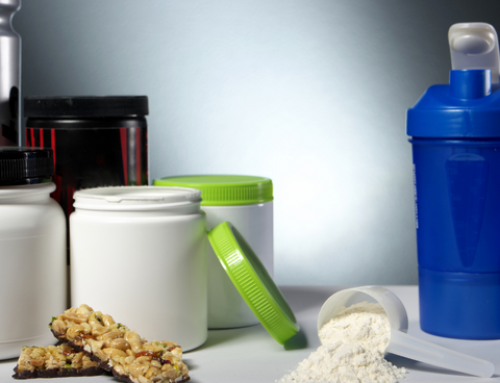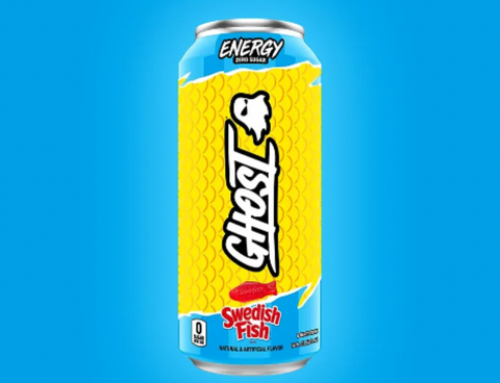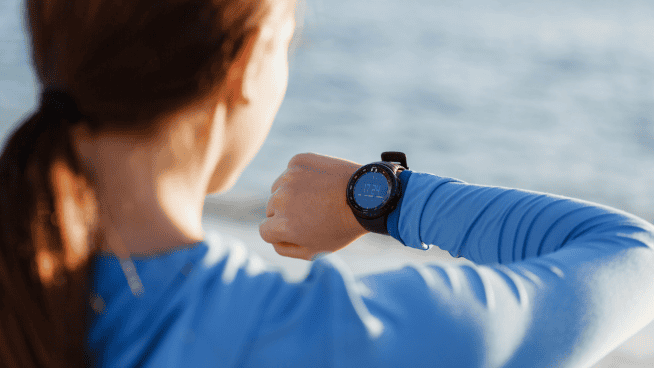The 6 Most Promising Weight-Loss Supplements

Capsaicinoids
Losing weight takes hard work, intense training and a strict nutrition plan. This challenge forces many athletes who need to trim excess fat to look for a supplement that will help them achieve their weight-loss goals. (Learn if cardio is the best way to burn fat.)
Unfortunately, weight-loss supplements are a mixed bag. There will always be new “miracle” supplements that claim to burn fat, but no supplement has proven to be the true answer for how to lose weight. Furthermore, some people claim to have fantastic success with some supplements, while others experience no results.
With that being said, some weight-loss supplements on the market have been shown through scientific research to improve or accelerate fat burn. Don’t get the wrong impression. If you rely on a supplement alone, you will be disappointed when you step on the scale. However, the right supplement combined with a solid training and nutrition plan can yield real results. (Learn how to lose weight safely.)
We’ve enlisted Dr. Tim Ziegenfuss, former president of the International Society of Sports Nutrition (ISSN) and a prominent nutrition researcher, to shed light on several of today’s most common weight loss supplements. Below you will find a list of supplements that have at least some evidence to support their effectiveness for fat burning and weight loss. They are ordered from most to least promising.
Green Tea and Caffeine
When combined with caffeine, green tea is one of the most effective weight-loss supplements. Several studies have shown that green tea’s unique properties—specifically EGCg catechins—combined with caffeine increase fat burn and boost metabolism. [5,6] Dr. Ziegenfuss explains that although green tea and caffeine can effectively speed weight loss, the effect is not instantaneous. “It’s a very cheap and effective combo,” he explains. “But it’s an eight- to 12-week fix.”
He recommends drinking three cups of green tea each day to consume a total of 100mg of caffeine and 90mg of EGCg. Your last dose should be in the mid-afternoon so you don’t have problems falling asleep at night.
Advantra-Z
Advantra-Z is one of the most misunderstood weight-loss supplements on the market. It contains synephrine, a stimulant derived from bitter orange that increases fat burn. Synephrine is not typically recommended for weight loss, because it can increase blood pressure and cause cardiovascular problems similar to the banned supplement. ephedrine.
Dr. Ziegenfuss explains that Advantra-Z does not elevate blood pressure, because it contains a pure form of synephrine that has been proven to have no dangerous side effects. [7] Cheaper versions may use a less pure form of synephrine, so choose your product wisely.
Capsaicinoids
Capsaicinoids are a form of capsaicin—the compound found in chili peppers that causes the hot or burning sensation in your mouth. Capsaicinoids are flavorless, so they don’t evoke a burning response in the mouth. Capsaicinoid ingestion has been found to boost metabolism and help burn fat by increasing the amount of heat the body produces and activating brown fat, which uses white fat cells as a source of energy. [2,3]
It’s difficult, if not impossible, to eat enough spicy foods to get the amount of capsaicin you need to increase fat burn. Dr. Ziegenfuss explains that if you were to try, you’d likely get sick before triggering any kind of fat-burning response. So stick to a supplement that has capsaicinoids to get the benefit of this spicy-food compound.
Green Coffee Bean Extract
Since Dr. Oz promoted green coffee bean extract, it has become one of the most highly sought after weight-loss supplements. And there’s good reason to believe it may actually work. A study found that 16 overweight adults lost an average of 18 pounds when supplementing with green coffee bean extract over 22 weeks. [1]
At this point, Dr. Ziegenfuss says that the evidence is moderate since only a few studies have been published. However, the research is promising, and green coffee bean extract carries no health concerns. “It is very safe, it can be taken on its own and seems to be effective for people who eat a lot of carbs,” says Dr. Ziegenfuss. “It helps you manage blood sugar and insulin levels and makes you a better fat burner.”
Raspberry Ketone
Similar to green coffee bean extract, raspberry ketone was recently popularized by Dr. Oz when he called it a “miracle fat burner in a bottle.” It might not be a miracle, but there is evidence that it can help you lose weight.
Raspberry ketones give raspberries their aroma. When extracted, they have been shown to cause increased fat burn in rodents. [4] Evidence of fat-burning in humans is limited. Dr. Ziegenfuss says, “When combined with capsaicinoids and Advantra-Z, it sparks the fat-burning process because it works on complementary mechanisms. If you are interested in taking raspberry ketone, look for a supplement that contains the other two ingredients.
Conjugated Linoleic Acid (CLA)
CLA is one of the two beneficial omega-6 fatty acids (the others are bad for you because they increase inflammation). Dr. Ziegenfuss says that CLA seemed to help weight loss in studies done in Scandinavia, but the results have not been replicated in the United States. “It might help, but there’s not a consistent benefit for Americans,” he adds. “It could be our genetics.” Even in cases in which people have seen a weight loss benefit, the results have been slow and modest.
Sources
- Haller, C., Benowitz, N., & Jacob, P. (2005). “Hemodynamic effects of ephedra-free weight-loss supplements in humans.” The American Journal of Medicine , 118 (9), 998-1003.
- Morimoto, C., Satoh, Y., Hara, M., Inoue, S., Tsujita, T., & Okuda, H. (2005). “Anti-obese action of raspberry ketone.” Life Sciences , 77 (2), 194-204.
- Nagao, T., Hase, T., & Tokimitsu, I. (2012). “A Green Tea Extract High in Catechins Reduces Body Fat and Cardiovascular Risks in Humans.” Obesity: A Research Journal , 15 (6), 1473-1483.
- Vinson, J., Burnham, B., & Nagendran, M. (2012). “Randomized, double-blind, placebo-controlled, linear dose, crossover study to evaluate the efficacy and safety of a green coffee bean extract in overweight subjects.” Diabetes, Metabolic Syndrome and Obesity: Targets and Therapy , 5, 21-27.
- Westerterp-Plantenga, M., Lejeune, M., & Kovacs, E. (2005, July). “Body weight loss and weight maintenance in relation to habitual caffeine intake and green tea supplementation.” Obes Res , 1195-204.
- Yoneshior, T., & Saito, M. (2013). “Capsinoids and related food ingredients activating brown fat thermogenesis and reducing body fat in humans.” Current Opinion in Lipidolog , 24 (1), 71-77.
- Yoneshiro, T., Aita, S., Kawai, Y., Iwanaga, T., & Saito, M. (2012, February). “Nonpungent capsaicin analogs (capsinoids) increase energy expenditure through the activation of brown adipose tissue in humans.” American Journal of Clinic Nutrition .
Photo: 21food.com
RECOMMENDED FOR YOU
MOST POPULAR
The 6 Most Promising Weight-Loss Supplements

Capsaicinoids
Losing weight takes hard work, intense training and a strict nutrition plan. This challenge forces many athletes who need to trim excess fat to look for a supplement that will help them achieve their weight-loss goals. (Learn if cardio is the best way to burn fat.)
Unfortunately, weight-loss supplements are a mixed bag. There will always be new “miracle” supplements that claim to burn fat, but no supplement has proven to be the true answer for how to lose weight. Furthermore, some people claim to have fantastic success with some supplements, while others experience no results.
With that being said, some weight-loss supplements on the market have been shown through scientific research to improve or accelerate fat burn. Don’t get the wrong impression. If you rely on a supplement alone, you will be disappointed when you step on the scale. However, the right supplement combined with a solid training and nutrition plan can yield real results. (Learn how to lose weight safely.)
We’ve enlisted Dr. Tim Ziegenfuss, former president of the International Society of Sports Nutrition (ISSN) and a prominent nutrition researcher, to shed light on several of today’s most common weight loss supplements. Below you will find a list of supplements that have at least some evidence to support their effectiveness for fat burning and weight loss. They are ordered from most to least promising.
Green Tea and Caffeine
When combined with caffeine, green tea is one of the most effective weight-loss supplements. Several studies have shown that green tea’s unique properties—specifically EGCg catechins—combined with caffeine increase fat burn and boost metabolism. [5,6] Dr. Ziegenfuss explains that although green tea and caffeine can effectively speed weight loss, the effect is not instantaneous. “It’s a very cheap and effective combo,” he explains. “But it’s an eight- to 12-week fix.”
He recommends drinking three cups of green tea each day to consume a total of 100mg of caffeine and 90mg of EGCg. Your last dose should be in the mid-afternoon so you don’t have problems falling asleep at night.
Advantra-Z
Advantra-Z is one of the most misunderstood weight-loss supplements on the market. It contains synephrine, a stimulant derived from bitter orange that increases fat burn. Synephrine is not typically recommended for weight loss, because it can increase blood pressure and cause cardiovascular problems similar to the banned supplement. ephedrine.
Dr. Ziegenfuss explains that Advantra-Z does not elevate blood pressure, because it contains a pure form of synephrine that has been proven to have no dangerous side effects. [7] Cheaper versions may use a less pure form of synephrine, so choose your product wisely.
Capsaicinoids
Capsaicinoids are a form of capsaicin—the compound found in chili peppers that causes the hot or burning sensation in your mouth. Capsaicinoids are flavorless, so they don’t evoke a burning response in the mouth. Capsaicinoid ingestion has been found to boost metabolism and help burn fat by increasing the amount of heat the body produces and activating brown fat, which uses white fat cells as a source of energy. [2,3]
It’s difficult, if not impossible, to eat enough spicy foods to get the amount of capsaicin you need to increase fat burn. Dr. Ziegenfuss explains that if you were to try, you’d likely get sick before triggering any kind of fat-burning response. So stick to a supplement that has capsaicinoids to get the benefit of this spicy-food compound.
Green Coffee Bean Extract
Since Dr. Oz promoted green coffee bean extract, it has become one of the most highly sought after weight-loss supplements. And there’s good reason to believe it may actually work. A study found that 16 overweight adults lost an average of 18 pounds when supplementing with green coffee bean extract over 22 weeks. [1]
At this point, Dr. Ziegenfuss says that the evidence is moderate since only a few studies have been published. However, the research is promising, and green coffee bean extract carries no health concerns. “It is very safe, it can be taken on its own and seems to be effective for people who eat a lot of carbs,” says Dr. Ziegenfuss. “It helps you manage blood sugar and insulin levels and makes you a better fat burner.”
Raspberry Ketone
Similar to green coffee bean extract, raspberry ketone was recently popularized by Dr. Oz when he called it a “miracle fat burner in a bottle.” It might not be a miracle, but there is evidence that it can help you lose weight.
Raspberry ketones give raspberries their aroma. When extracted, they have been shown to cause increased fat burn in rodents. [4] Evidence of fat-burning in humans is limited. Dr. Ziegenfuss says, “When combined with capsaicinoids and Advantra-Z, it sparks the fat-burning process because it works on complementary mechanisms. If you are interested in taking raspberry ketone, look for a supplement that contains the other two ingredients.
Conjugated Linoleic Acid (CLA)
CLA is one of the two beneficial omega-6 fatty acids (the others are bad for you because they increase inflammation). Dr. Ziegenfuss says that CLA seemed to help weight loss in studies done in Scandinavia, but the results have not been replicated in the United States. “It might help, but there’s not a consistent benefit for Americans,” he adds. “It could be our genetics.” Even in cases in which people have seen a weight loss benefit, the results have been slow and modest.
Sources
- Haller, C., Benowitz, N., & Jacob, P. (2005). “Hemodynamic effects of ephedra-free weight-loss supplements in humans.” The American Journal of Medicine , 118 (9), 998-1003.
- Morimoto, C., Satoh, Y., Hara, M., Inoue, S., Tsujita, T., & Okuda, H. (2005). “Anti-obese action of raspberry ketone.” Life Sciences , 77 (2), 194-204.
- Nagao, T., Hase, T., & Tokimitsu, I. (2012). “A Green Tea Extract High in Catechins Reduces Body Fat and Cardiovascular Risks in Humans.” Obesity: A Research Journal , 15 (6), 1473-1483.
- Vinson, J., Burnham, B., & Nagendran, M. (2012). “Randomized, double-blind, placebo-controlled, linear dose, crossover study to evaluate the efficacy and safety of a green coffee bean extract in overweight subjects.” Diabetes, Metabolic Syndrome and Obesity: Targets and Therapy , 5, 21-27.
- Westerterp-Plantenga, M., Lejeune, M., & Kovacs, E. (2005, July). “Body weight loss and weight maintenance in relation to habitual caffeine intake and green tea supplementation.” Obes Res , 1195-204.
- Yoneshior, T., & Saito, M. (2013). “Capsinoids and related food ingredients activating brown fat thermogenesis and reducing body fat in humans.” Current Opinion in Lipidolog , 24 (1), 71-77.
- Yoneshiro, T., Aita, S., Kawai, Y., Iwanaga, T., & Saito, M. (2012, February). “Nonpungent capsaicin analogs (capsinoids) increase energy expenditure through the activation of brown adipose tissue in humans.” American Journal of Clinic Nutrition .
Photo: 21food.com










